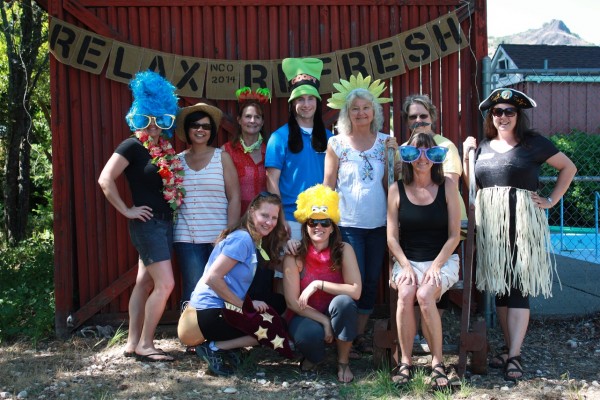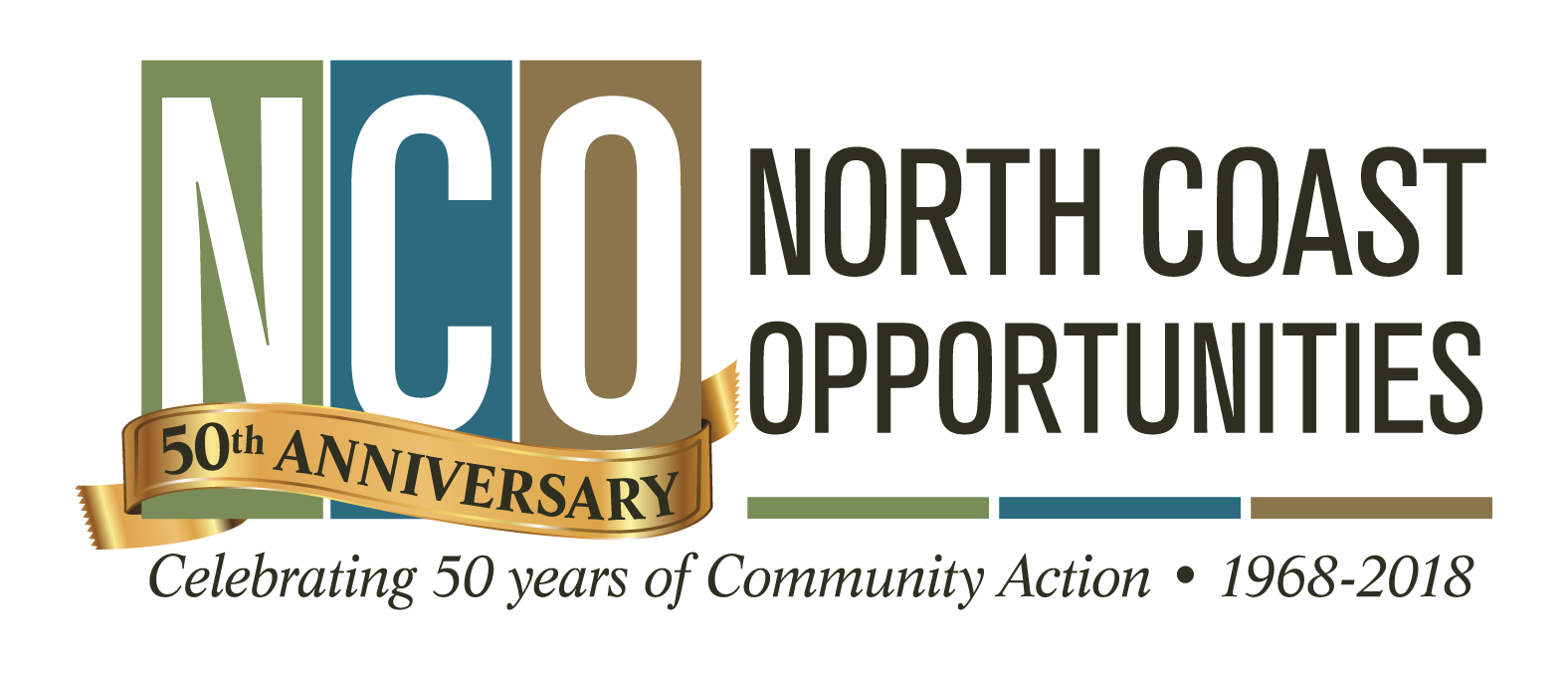
Above: A group of NCO employees gets goofy in the “photo booth” at the recent Retreat and Refresh Day, an annual gathering for all staff.
Celebrating 50 Years of Community Action in the United States
Monday, May 19, 2014
On Friday, May 16, about 150 North Coast Opportunities employees gathered for a staff “Retreat and Refresh” day at Ridgewood Ranch near Willits. These annual gatherings are the one time a year that NCO is united under one roof, with offices spread out across Mendocino, Lake, Sonoma, Humboldt, and Solano counties running the organization’s numerous programs. “It’s easy to be fragmented with so much going on,” said NCO Executive Director Patty Bruder on Friday. “A day like today unites us and reminds us of our common vision: to invest in people through community action.”
Not many people know that May is Community Action Month, or that 2014 is the 50th anniversary of Community Action in the United States. In fact, not many people know what Community Action even is - a program started by President Lyndon B. Johnson under the Economic Opportunity Act of 1964. Part of Johnson’s famous “War on Poverty,” the Community Action program is designed to assist and empower low-income people to become self-sufficient. This is achieved through services such as job trainings, counseling, food pantries, affordable child care, and even micro-loans. The goal is now and always has been to “[better] the conditions under which people live, learn, and work.”
Nearly 99% of the nation’s counties are covered by at least one of approximately 1,100 non-profit Community Action Agencies (CAAs). These agencies comprise the larger Community Action Partnership, and together they serve over 16 million people each year. Most Community Action clients are extremely poor, with incomes below 75 percent of the federal poverty threshold (or $9,735 for a family of three).
Much of the North Coast is served by NCO, a particularly active CAA with nearly 200 employees. In Johnson’s words, the purpose of each agency is to replace “despair with opportunity,” a goal NCO has worked toward since 1968. The funding is different for each program but largely comprises federal and state dollars, as well as private foundation grants and donations.
Johnson intentionally chose to empower localized agencies, saying, “These are not plans prepared in Washington and imposed upon hundreds of different situations. They are based on the fact that local citizens best understand their own problems, and know best how to deal with those problems.”
Community Action agencies help millions of low-income people and families move out of poverty and achieve economic stability through a variety of targeted programs. NCO’s programs include the Head Start Child Development Program, The Gardens Project, Nutrition Basics, Farm2Fork, the Retired Senior Volunteer Program and the Volunteer Network, the Foster Grandparent Program, the Redwood Caregiver Resource Center, Rural Communities Child Care, the Food Pantry, and Leadership Mendocino. NCO helps veterans, senior citizens, families, children, students, and everyone in between.
By law, each CAA is governed by a board of directors which must be comprised of at least one-third low-income residents, one-third public officials, and one-third business owners or other private sector individuals. NCO’s board comprises 12 community members who meet every month to make decisions about how NCO should proceed in the weeks, months, and years ahead. “We have a creative and dedicated board that is committed to improving the quality of life in our community,” says Bruder. “It’s a pleasure working with them, and with the amazing staff here at NCO.”
